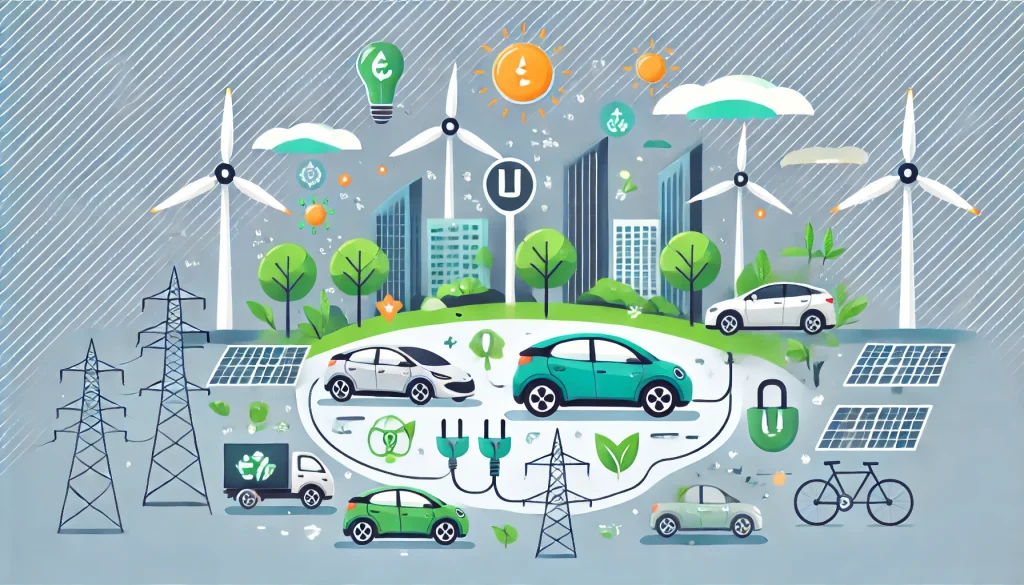Electric vehicles (EVs) have emerged as a promising solution to reduce the environmental impact of transportation. With growing concerns about climate change and air pollution, the shift from traditional internal combustion engine (ICE) vehicles to EVs represents a significant step towards a more sustainable future. This article explores the ecological benefits of electric vehicles and how different manufacturers are addressing environmental challenges.
Reduction of Greenhouse Gas Emissions
One of the primary environmental benefits of EVs is the reduction in greenhouse gas (GHG) emissions. Traditional vehicles burn fossil fuels, releasing carbon dioxide (CO2) and other harmful pollutants into the atmosphere. EVs, on the other hand, produce zero tailpipe emissions, significantly lowering the overall carbon footprint of transportation. Studies have shown that even when considering the emissions from electricity generation, EVs contribute less CO2 per mile compared to conventional vehicles.
Furthermore, as the electricity grid becomes greener with an increasing share of renewable energy sources such as wind and solar, the environmental advantages of EVs will continue to grow. Countries and regions with clean energy policies are seeing substantial benefits from widespread EV adoption, further driving down GHG emissions.
Improvement of Air Quality
Air quality improvement is another significant advantage of electric vehicles. ICE vehicles emit various pollutants, including nitrogen oxides (NOx) and particulate matter (PM), which contribute to smog and respiratory problems. EVs do not produce these pollutants, leading to cleaner air in urban areas where traffic congestion is high. This improvement in air quality has direct health benefits, reducing the incidence of respiratory diseases and other health issues caused by air pollution.
Reduction of Noise Pollution
Electric vehicles are much quieter than their gasoline and diesel counterparts. The reduction in noise pollution is particularly beneficial in densely populated urban areas, contributing to a more pleasant and less stressful living environment. The quieter operation of EVs also makes them more suitable for night-time deliveries and operations in noise-sensitive areas.
Efforts by Manufacturers to Enhance Environmental Benefits
Various automakers are taking steps to enhance the environmental benefits of electric vehicles. Tesla, for example, focuses on producing high-efficiency batteries and integrating renewable energy solutions, such as solar panels and energy storage systems, to support a sustainable energy ecosystem. Tesla’s Gigafactories are designed to minimize waste and utilize renewable energy sources, further reducing the environmental impact of their production processes.
Other manufacturers like Nissan and BMW are also making significant strides. Nissan’s LEAF has been one of the most popular EVs worldwide, known for its affordability and efficiency. Nissan is committed to sustainability through its Green Program, which aims to reduce CO2 emissions and promote recycling. BMW’s i-series, including the i3 and i8 models, incorporates sustainable materials and energy-efficient manufacturing processes. BMW’s factories utilize renewable energy sources and are designed with sustainability in mind.
General Motors (GM) and Ford have also entered the EV market with ambitious plans to reduce their environmental impact. GM’s Ultium battery technology and Ford’s electrification of popular models like the Mustang Mach-E and F-150 Lightning demonstrate their commitment to a greener future. Both companies are investing heavily in renewable energy and sustainable manufacturing practices to support their EV initiatives.
Challenges and Future Prospects
While the environmental benefits of EVs are clear, there are challenges to be addressed. The production of EV batteries involves mining rare earth metals, which can have significant environmental impacts. Manufacturers are working on improving battery recycling and developing alternative materials to mitigate these effects. Advances in battery technology, such as solid-state batteries, promise to reduce the environmental footprint of EVs even further.
Another challenge is the need for extensive charging infrastructure to support the widespread adoption of EVs. Governments and private companies are investing in the expansion of charging networks, which will be crucial for the continued growth of the EV market. As the infrastructure improves, the convenience and accessibility of EVs will increase, encouraging more consumers to make the switch from traditional vehicles.
Conclusion
Electric vehicles offer substantial environmental benefits, including reduced greenhouse gas emissions, improved air quality, and lower noise pollution. Automakers are actively working to enhance these benefits through sustainable manufacturing practices, innovative battery technologies, and the integration of renewable energy sources. While challenges remain, the future of electric vehicles looks promising as advancements continue to drive the industry towards a more sustainable and environmentally friendly future. As more consumers adopt EVs and infrastructure develops, the positive impact on the environment will only grow, making electric vehicles a crucial component in the fight against climate change and environmental degradation.


totally agree! EVs can really help clean up the air in cities. Less noise and better health 🙂 Hope we see more of them on the roads
Yap! nearb home many people buy electric cars and becam much quiete!😃😃
Electric cars are amazing! They’re good for the planet and getting better all the time. The future is bright for EVs, and I’m so excited to see what happens next!
Haha, greetings from the future!🤣 Gas is still runnin the game🤣🤣
Electric cars are amazing! They’re good for the planet and getting better all the time. The future is bright for EVs, and I’m so excited to see what happens next!
Love it! EVs = cleaner air, less noise. 🌳🐦 Sustainable future looks bright! 🌞 Let’s keep pushing forward!
Lets make the planet a greener place 👍👍